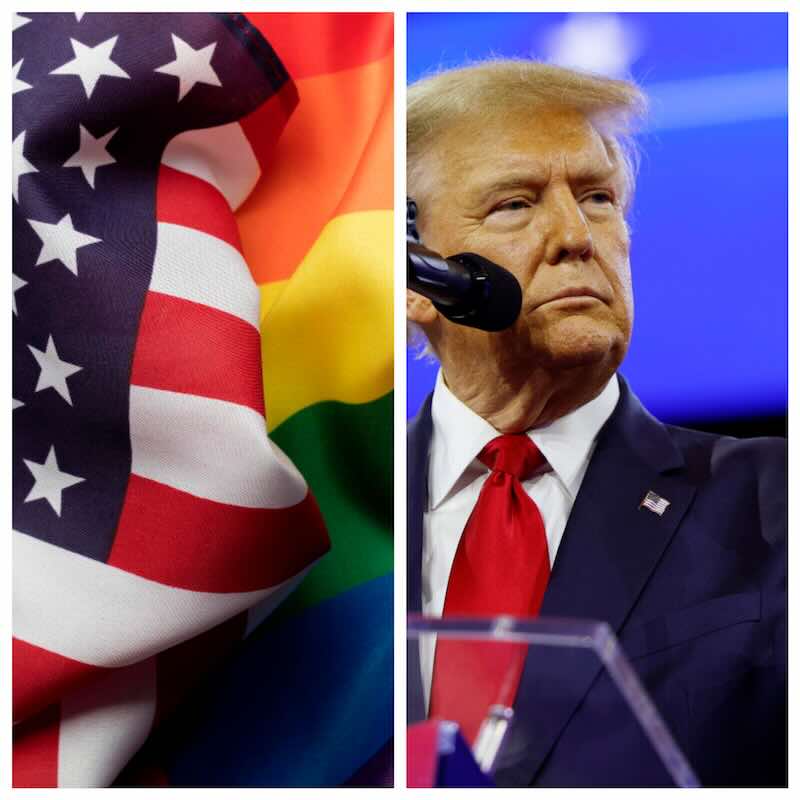Incessantly, debates about gender identity and LGBTQ+ rights continue to shape the socio-political landscape of the United States. With President-elect Donald Trump’s recent announcement to push for legislation that would redefine gender strictly as male or female, many are left wondering how this proposal will impact your rights and the ongoing fight for equality. This blog post investigates into the implications of such a contentious initiative and its potential to ignite renewed activism across the nation.
Definition of Gender as Male or Female Assigned at Birth
Female and male, as defined by President-elect Donald Trump in his proposed legislation, would strictly limit the understanding of gender to these two categories, assigned at birth. This binary approach aims to eradicate recognition of any other gender identities, effectively excluding many individuals from governmental acknowledgment and rights. You may find this definition particularly restrictive, as it does not account for the experiences and identities of non-binary or gender-diverse individuals.
Ban on Sex Reassignment Surgery for Minors
Some lawmakers, including Trump, are advocating for a ban on gender-affirming surgeries for minors, asserting that these procedures should not be available to those under the age of 18. This controversial proposal raises significant concerns regarding individual rights and medical practice, impacting not only those seeking care but also their families seeking guidance.
This ban would prevent young individuals from accessing necessary medical interventions that align with their gender identity, potentially exacerbating mental health issues commonly faced by transgender youth. Research indicates that gender-affirming care can significantly improve well-being for these individuals; thus, denying such options could lead to increased vulnerability and distress. As this legislation unfolds, you may want to consider its implications not just for medical freedom, but for the overall health and humanity of transgender minors.

Restrictions on Transgender Women in Women’s Sports
With President-elect Donald Trump’s proposed legislation, transgender women could face significant restrictions when competing in women’s sports. Trump asserts that allowing transgender women to participate compromises fairness in athletic competitions. This move is likely to ignite further debates surrounding inclusivity and equality in sports, leaving you to consider how these regulations will affect not just athletes but the broader landscape of women’s sports in America.
Effects on Title IX Regulations and School Policies
Transgender athletes may find their rights significantly undermined under Trump’s proposed legislation, which threatens to alter Title IX protections. By restricting participation based on gender assigned at birth, your understanding of inclusive education and athletics could shift dramatically, affecting schools’ obligations to provide equitable sports opportunities. This could lead to students facing challenges when accessing resources and support systems that previously fostered an inclusive atmosphere.
For instance, if Trump’s legislation is enacted, school sports programs might have to navigate a new legal landscape that restricts participation for transgender individuals. This could potentially result in divisions among students and decrease overall participation in athletics, as many might feel unwelcome or unsupported. As schools grapple with these changes, you may notice a shift in policy-making that affects not only athletes but also educational institutions’ commitment to equity and inclusion.
Biden’s Stance on Gender Identity and Rights
Some perceive President Biden as a strong advocate for LGBTQ+ rights, promoting policies that embrace gender diversity. Under his administration, federal agencies have been directed to recognize gender identities beyond the traditional male-female binary, highlighting a commitment to inclusion and equal protection for all individuals. This progressive stance starkly contrasts with the proposals put forth by former President Trump, fostering an environment where all gender identities are acknowledged and supported.
Legislative Actions Under the Biden Administration
An important aspect of Biden’s policies includes the implementation of executive orders aimed at safeguarding transgender rights. These measures encompass diverse protections in educational settings, promoting equality and safety for LGBTQ+ students. Furthermore, the Biden administration has vocalized support for gender-affirming care, asserting the importance of access to medical services for minors under proper supervision, which stands in stark opposition to Trump’s proposed legislation.
Biden has actively reversed many of the previous administration’s policies, championing an inclusive framework that encompasses gender equality and protections against discrimination. His administration has celebrated Pride Month and taken significant steps to bolster the rights and recognition of transgender individuals across various sectors, including healthcare and education. This shift indicates a robust stance in favor of civil rights, aimed at creating a society where individuals can express their identity without fear of legal repercussions or societal discrimination.

Potential Legal Challenges to Trump’s Proposal
Challenges to Trump’s proposed legislation are anticipated, as it may face significant opposition in federal courts. Many legal experts argue that the bill infringes on individual rights and could violate constitutional protections against discrimination. You may see advocacy groups quickly mobilizing to mount legal challenges, arguing that the law undermines both the autonomy of individuals and the rights of parents to make healthcare decisions for their children.
Rights and Protections Against Discrimination
An immediate concern surrounding Trump’s proposal is its impact on existing rights and protections against discrimination. As the proposed bill seeks to redefine gender strictly as male or female assigned at birth, it may conflict with multiple state laws and federal policies that currently protect LGBTQ+ individuals. This unsettling shift could spark constitutional debates focused on equal protection under the law and discrimination based on gender identity, leaving you to question how these changes may affect the ongoing fight for equality in the United States.
Constitutional considerations will likely play a significant role in any legal challenges to Trump’s proposed legislation. The Equal Protection Clause of the Fourteenth Amendment guarantees individuals protection against discrimination, raising questions about how this strict binary approach to gender may infringe upon those rights. You may find that court rulings on previous cases regarding gender identity and discrimination will heavily influence the outcomes of these challenges, which could be pivotal in guiding future policies and protections for LGBTQ+ individuals across the nation.
Support from Conservative Groups
There’s a strong backing for President-elect Donald Trump’s proposed legislation among conservative organizations, who argue that it safeguards traditional family values and upholds a binary view of gender. These groups advocate for a return to what they see as foundational principles, asserting that acknowledging only male and female genders as assigned at birth is important for protecting youth from what they consider harmful medical practices.
Opposition and Concerns from Advocacy Organizations
Reactions to Trump’s proposal have been swift and negative from various advocacy organizations, who warn that such a ban poses significant risks to the rights and well-being of LGBTQ+ individuals. Critics argue that redefining gender in a restrictive manner fosters discrimination and undermines the autonomy of families deciding on gender-affirming care for their children.
Advocacy groups emphasize that Trump’s proposed legislation could violate constitutional protections against discrimination, further marginalizing an already vulnerable community. Many organizations argue that denying federal recognition of diverse gender identities not only contradicts the experiences of countless individuals but also disregards medical and psychological research supporting gender-affirming care. They foresee extensive legal battles ahead, as individuals and families challenge the proposed restrictions on their rights and choices.
Donald Trump Proposes Controversial Ban on LGBTQ Rights in the United States: What It Means for Equality and Activism
Conclusively, as you reflect on Donald Trump’s proposed legislation to redefine gender and restrict LGBTQ+ rights, it’s important to consider the potential implications for equality and activism in your community. This proposal could drastically change the legal landscape, igniting debates about personal identity, government roles, and individual rights. With President Biden’s contrasting policies advocating for broader gender recognition, you may find yourself engaged in discussions about the direction of civil rights in America and the importance of active participation in the ongoing struggle for equality.










